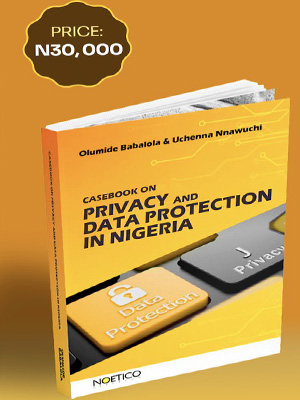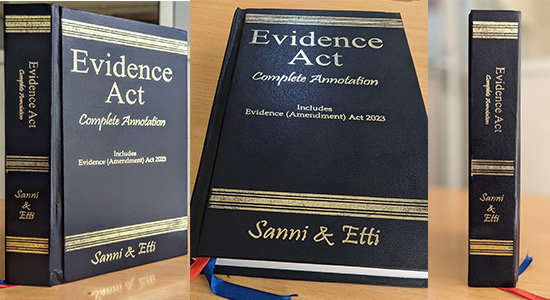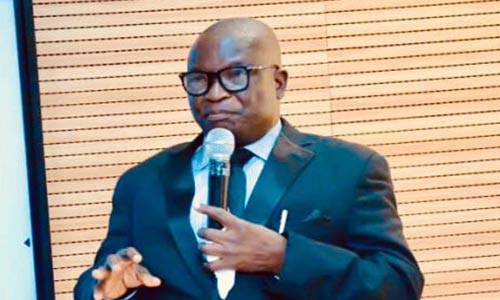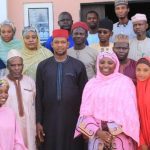
A one-day public hearing was held at the National Assembly to deliberate on a bill seeking to repeal the Electoral Act 2025. Justice Alaba Omolaye-Ajileye, a retired judge, renowned authority on electronic evidence, and Visiting Professor at the National Open University of Nigeria (NOUN), made a compelling case for the adoption of blockchain technology to transform Nigeria’s electoral process.

Justice Ajileye noted that one of the persistent concerns about the electronic transmission of election results is the threat of hackers and “virtual bandits” who could compromise election outcomes. He, however, argued that blockchain technology has the potential to eliminate such risks.
“Blockchain technology offers a decentralized, immutable ledger that can record and verify election results in a tamper-proof manner,” he stated. “This ensures that once results are transmitted, they cannot be altered or manipulated.”
Explaining further, the retired jurist said the concept of blockchain is built on a distributed ledger system that duplicates and distributes transactions across a network of computers, making it virtually impossible to hack or manipulate.
By leveraging blockchain technology, he added, Nigeria’s electoral process could achieve greater security, transparency, and credibility. The system, he said, would enable secure and verifiable voting mechanisms that strengthen public confidence in electoral outcomes.
The bill under consideration seeks to repeal the existing Electoral Act and introduce new provisions aimed at enhancing transparency and credibility in Nigeria’s elections. Justice Ajileye emphasized that blockchain deployment would play a crucial role in achieving these objectives.
He urged lawmakers to give serious consideration to the inclusion of blockchain technology in the new framework, stressing that its decentralized and immutable nature could significantly improve the transparency, security, and integrity of Nigeria’s democratic process.
Below is the full memorandum submitted by Hon. Justice (Professor) Alaba Omolaye-Ajileye (rtd.), PhD, FICMC, to the Committee of the National Assembly on the Electoral Bill 2025 (HB.2479) during the public hearing held on Monday, October 13, 2025.
1. Introduction
This Memorandum is respectfully submitted to the National Assembly in response to the call for memoranda at the Public Hearing on the proposed amendment to the Electoral Act, 2022. The purpose of this submission is to contribute to the ongoing legislative discourse aimed at strengthening Nigeria’s electoral legal framework, enhancing the credibility of the electoral process, and deepening democratic governance.
The quest for fair and credible elections in Nigeria has been a persistent and daunting challenge. Despite numerous attempts to reform the electoral process, obstacles continue to hinder the integrity of elections, thereby undermining the country’s democratic aspirations. Nigeria’s elections are still riddled with elements of crudity and primitivity, manifesting in the form of the form of snatching of ballot boxes, stuffing of ballot boxes with thumb-printed ballot papers, impersonation, over-voting, multiple voting, under-age voting, amongst others. These electoral vices have long plagued the country’s electoral landscape. It is unthinkable that we still allow these vices to remain an albatross on the neck of our electoral system in this first quarter of the 21st Century when technology dominates every aspect of human endeavour including electoral processes.
The fulcrum of my presentation centres around the submission that if we are really serious in ensuring that Nigeria’s elections are credible, transparent, free, and fair, we must be prepared to leverage technology more effectively in future elections. It is my belief that technology, if effectively deployed, would eliminate the crudity and primitivity associated with Nigeria’s elections.
There is no doubt that the pursuit of electoral integrity has led to various initiatives, including the introduction of new technologies such as smart card reader and bimodal voter accreditation system (BIVAS) aimed at strengthening the electoral process. The problem with us is that we have restricted the use of these technologies to only one aspect of our elections, i.e. accreditation. The concept of election generally denotes a process consisting of about six stages: accreditation, voting, collation, recording on all INEC forms, transmission of results, and declaration of results. Each of these stages is as crucial as any other one. A determined reform of Nigeria’s electoral system should target the use of technology at all the stages of the electoral process, without exception.
Comments on specific provisions
2. Accountability and Financial Transparency
First and foremost, let me commend the National Assembly over the amendment proposed to Section 5 of the Electoral Act, 2022. The said section requires the Independent National Electoral Commission (INEC) to audit its accounts “as soon as possible after the end of each financial year.” In contrast, Section 5 of the Electoral Bill, 2025 now stipulates that INEC’s accounts shall be audited “not later than six months after the end of each financial year.” This precise timeframe incorporates element of legal certainty that will compel a timely disclosure and reinforce public confidence in INEC’s financial management and also ensures accountability.
3. Technology and the Boundaries of Section 47
A major objective of electoral reform should be to leverage technology to enhance transparency, reduce human interference, and increase the credibility of results.
Yet, Section 47 of the proposed Act maintains a strictly manual voting framework. Subsection (1) requires every voter to “present himself with his voter’s card to a Presiding Officer for accreditation at the polling unit,” while subsection (2) restricts technological use to the accreditation stage:
“To vote, the Presiding Officer shall use a smart card reader or any other technological device … for the accreditation of voters.”
By confining technology to accreditation alone, Section 47 excludes electronic voting from the legal architecture. It leaves Nigeria’s elections dependent on paper ballots and manual counting, despite global and regional trends toward digital systems that promote speed, accuracy, and transparency.
- (a) Inclusive voter verification process
On good thing in Section 47 is its attempt to reduce voter disenfranchisement. Subsection 2 allows manual verification for voters without Voter ID cards, provided their names appear on the register. Any form of identification prescribed in Section 10 (2) suffices. These include birth certificate, Nigerian Passport, or National Identification Number (NIN).
4. Section 50: Between Caution and Progress
Section 50 provides:
- Voting at an election under this Act shall be by open secret ballot.
- Subject to section 63 of this Act, voting at an election and transmission of results under this Act shall be in accordance with the procedure determined by the Commission.
- A voter on receiving a ballot paper shall mark it in the manner prescribed by the Commission.
- All ballots … shall be deposited in the ballot box in the open view of the public.
While subsection (2) appears to grant INEC discretion to determine the procedure for voting and transmission of results, the surrounding subsections entrench manual voting through the use of ballot papers and boxes. INEC’s discretion, therefore, extends only to how manual voting is conducted, not whether electronic voting may replace it.
The consequence is that the Bill maintains the vulnerabilities of a paper-based system—ballot-box snatching, overvoting, and collation tampering—rather than institutionalising secure electronic alternatives.
5. Section 55: Reinforcing the Exclusion of Electronic Voting
Section 55 further entrenches this manual paradigm. It states:
“A voter shall not record his or her vote otherwise than by personally attending at the polling unit or voting centre and recording his or her vote in the manner prescribed by the Commission.”
This provision legally requires physical presence and manual recording of votes. It forecloses remote or electronic voting, including any system that would allow a voter to cast a ballot electronically—whether at a designated centre or remotely through verified digital means.
Although the section permits INEC to prescribe how a vote is recorded, that discretion operates only within the boundary of physical attendance. As such, Section 55 completes a triad with Sections 47 and 50 that collectively exclude electronic voting from Nigeria’s legal framework.
Rather than providing a foundation for gradual digital transformation, the Bill freezes the electoral process within the mechanics of twentieth-century voting methods.
6. Implications for Electoral Modernisation
The combined effect of Sections 47, 50, and 55 is that the Electoral Bill, 2025 adopts a half-measure approach to technology—allowing digital tools for accreditation or result transmission but stopping short of permitting electronic voting itself.
This partial digitalisation undermines the broader goals of electoral integrity and efficiency. It leaves INEC unable to implement fully automated voting and counting systems, which have been adopted in several African democracies such as Kenya, Namibia, and Ghana. The Bill therefore risks positioning Nigeria as a technological laggard in the evolving landscape of electoral innovation.
- Transmission of Results: The Threats of Hackers and Virtual Bandits can be Overcome Through Deployment of Blockchain Technology
One of the greatest arguments against electronic transmission of results consists off the nefarious activities of hackers and ‘virtual bandits’ to interject, alter or manipulate election results. These can be overcome through the use of Blockchain technology which is capable of offering security and transparency. Blockchain is a method of recording information that makes it impossible or difficult for the system to be changed, hacked, or manipulated. It is a distributed ledger that duplicates and distributes transactions across the network of computers participating in it. Blockchain technology is a structure that stores transactional records, also known as the block, of the public in several databases, known as the “chain,” in a network connected through peer-to-peer nodes. Typically, this storage is referred to as a ‘digital ledger.’
By utilizing a decentralized, immutable ledger, election results can be recorded and verified in a tamper-proof manner. This ensures that once results are transmitted, they cannot be altered or manipulated. Blockchain technology can also enable secure and transparent voting systems, ensuring the integrity of the electoral process.
8. Conclusion – Toward a More Progressive Framework
To align Nigeria’s electoral legislation with global best practices, the law must provide flexibility for technological evolution while safeguarding ballot secrecy and transparency. Section 50, read together with Section 55, could be recast as follows:
“Voting at an election under this Act shall ensure the secrecy of the ballot and transparency of the process and may be conducted by open secret ballot or by electronic means as may be determined by the Commission. Such a formulation would maintain the constitutional guarantees of openness and secrecy while legally enabling INEC to introduce electronic or hybrid systems when ready.
The Electoral Bill, 2025 presents itself as a reform initiative, but in its current form, it resists innovation. Sections 47, 50, and 55 collectively shut the door on electronic voting, confining the Commission to manual procedures that have repeatedly proven vulnerable to abuse.
True reform should aim not merely to preserve familiar practices but to transform them in ways that strengthen transparency, credibility, and public trust. Nigeria’s electoral future must leverage a legal framework that embraces technology, enforces accountability, and evolves with democratic aspirations.
Unless the Bill is redrafted to embed these principles, the Electoral Act, 2025 may turn out to be a reform in form but a regression or at best, a stagnation in substance.
Hon. Justice (Professor) Alaba Omolaye-Ajileye, (rtd) PhD, FICMC
Former High Court Judge
Visiting Professor, National Open University of Nigeria (NOUN)
Explore Nigeria’s Constitutional System — 17 Chapters, 924 Pages Of Insight By Prof. Hagler Sunny Okorie

Call to Order Your Copy:
📞 0803 766 7945 | 0802 863 6615 | 0803 225 3813
✉️ haglersoco@gmail.com
🏢 Winners Chambers, 135 Ehi Road, Aba, Abia State
______________________________________________________________________
NBA Accredited Service Provider, “Momodu B. Law Publishing” Unveils Landmark Law Publications And Services — Order Now!

The publishing firm has produced an impressive catalogue of authoritative legal texts authored by its proprietor, Basil Momodu, Esq.,
For inquiries, contact:
📧 momodulawpublishing@yahoo.com
📞 07051822705
______________________________________________________________________
“Timely And Groundbreaking” — Babalola, Nnawuchi Release Casebook On Privacy & Data Protection In Nigeria A timely new publication, Casebook on Privacy & Data Protection in Nigeria, co-authored by Olumide Babalola and Uchenna Nnawuchi,📘Casebook on Privacy & Data Protection in Nigeria is now available on Amazon:https://a.co/d/8TmFZrd
A timely new publication, Casebook on Privacy & Data Protection in Nigeria, co-authored by Olumide Babalola and Uchenna Nnawuchi,📘Casebook on Privacy & Data Protection in Nigeria is now available on Amazon:https://a.co/d/8TmFZrd
______________________________________________________________________
Alexander Payne Co. Law Reports

Contact & Orders
📞 0704 444 4777 | 0704 444 4999 | 0818 199 9888
🌐 www.alexandernigeria.com
______________________________________________________________________
Groundbreaking Guide For Lawyers: Adigwe Publishes ‘Artificial Intelligence For Lawyers’ With Free Research eBook

Authored by Ben Ijeoma Adigwe Esq., ACiarb (UK), LL.M, Dip. in Artificial Intelligence, Director at the Delta State Ministry of Justice, Asaba, Nigeria.
How to Order:
📞 Call, Text, or WhatsApp: 08034917063 | 07055285878
📧 Email: benadigwe1@gmail.com
🌎 Website: www.benadigwe.com
Ebook Version: Access it directly online at https://selar.com/prv626
______________________________________________________________________
[A MUST HAVE] Evidence Act Demystified With Recent And Contemporary Cases And Materials

Available now for NGN 40,000 at ASC Publications, 10, Boyle Street, Onikan, Lagos. Beside High Court, TBS. Email publications@ayindesanni.com or WhatsApp +2347056667384. Purchase Link: https://paystack.com/buy/evidence-act-complete-annotation
_________________________________________________________________







